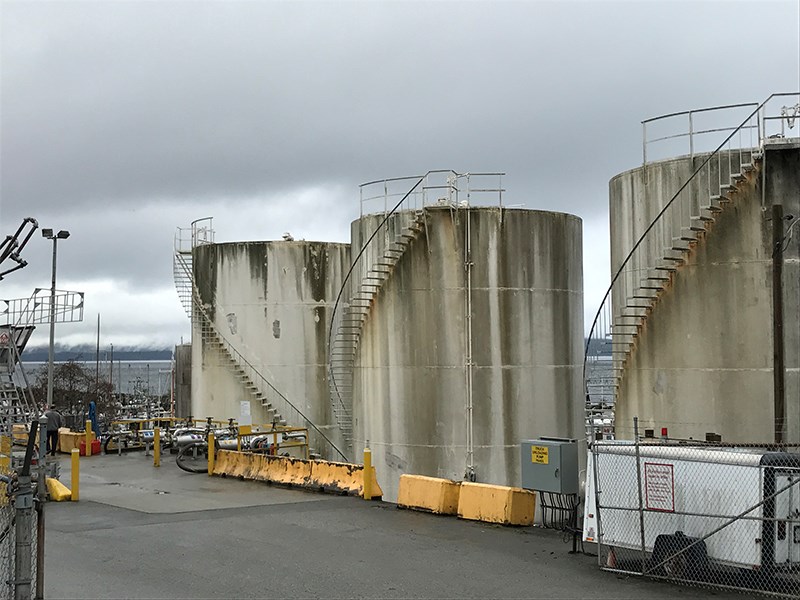A Stevenson Road resident concerned about the impact a new Sunshine Coast Fuels fuel-tank site on Highway 101 will have on his property has been told by the BC Ministry of Environment that no environmental assessment will be done.
Evan Ehgoetz said he is worried about area’s wells being contaminated by any spills that occur at the new tank site, as well as the increase in the amount of stormwater runoff that will flow from the paved site and into the nearby ditch along Highway 101.
“The current government position is to let projects be self-governed,” said Ehgoetz. “This approach does not promote preventative action, only expensive reactions after preventable environmental disaster has occurred.”
Ehgoetz’s house, like many in the area, is only feet away from the edge of a steep bank 40 feet down to the ocean. Next to his home is the outfall for the storm drain ditch. He said he has watched over the years as the bank has been eroding.
“This has become a serious liability issue for the residents,” he said.
Bylaws that would give Powell River Regional District the ability to regulate development in hazardous areas south of town have been voted down twice already, but one director says the third time may be the charm.
Electoral Area B alternate director Alan Rebane said he will try to bring the defeated bylaws back for debate as the issue of groundwater management in BC Transportation and Infrastructure drainage ditches has come back to the forefront of discussion in light of Ehgoetz’ opposition to the Highway 101 project near Stevenson Road.
Electoral Area C director Colin Palmer, in a previous meeting, commented that while it is commonly thought that regional district staff is responsible for maintaining for roads and drainage ditches, that is simply not the case and the task falls under the jurisdiction of the provincial government. Rebane said his constituents have found it difficult in the past to have the province maintain the local infrastructure, but added that he hopes that is changing with the focus of the landslides issue.
Without development permits, the regional district has no grounds to object to any developments when the provincial government seeks a referral, said Rebane.
The expanding of landslide and fluvial hazard zones in electoral areas B and C were one of the recommendations that came out of 2015 geotechnical assessment of the areas. Anyone wishing to create new development within those identified zones would first need to seek a permit from regional district planning staff.
Rebane said the fuel-tank site, which will see Sunshine Coast Fuels move from Wharf Street at Marine Avenue to Highway 101, is a clear example of why the regional district needs to be have a greater ability to manage development in hazardous areas. He voted against the establishment of expanded hazard zones in December and November, saying that they did not extend far enough up the hill to meaningfully address the issue.
“The crux of the matter is that we have no development permits,” said Rebane. “We have no heads-up on these development issues.”
Palmer voted against the bylaws in December and said at the time that he would have liked to have seen them go to the planning committee for more development.
In December, when Palmer voted against expanding the landslide hazard areas, he said he wanted to meet with the transportation and infrastructure ministry to discuss the creation of a comprehensive drainage plan for the area.
Now, the directors may get their chance to make the amendments they said they wanted.
At the regional board’s Thursday, March 9, committee of the whole meeting, members directed Ehgoetz’s correspondence to be discussed at the next regional district planning committee meeting.



